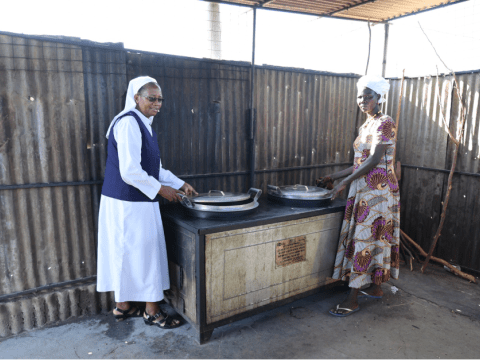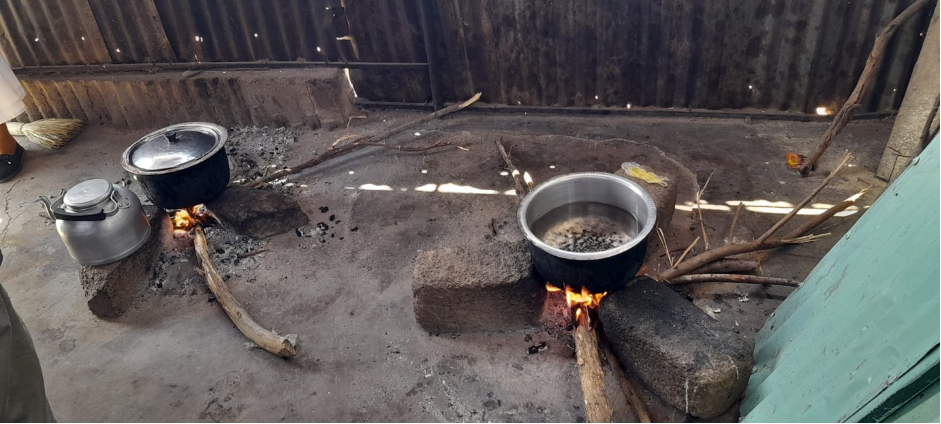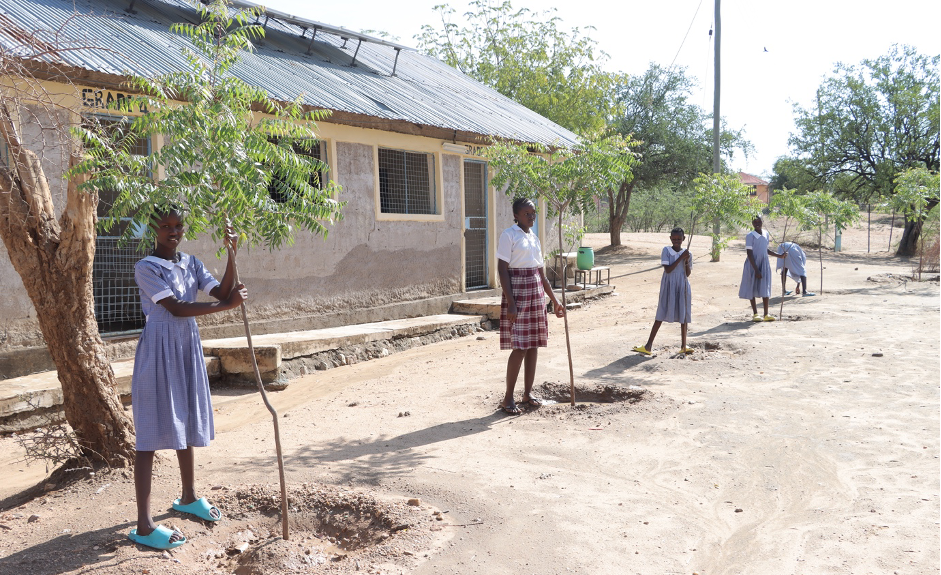Climate Action: How Access to Clean Cooking Protects the Environment

The majority of households in rural villages in Kenya, as in other developing countries, lack access to affordable, and clean energy for cooking. Instead, they rely on smoky fires fuelled by wood and charcoal to prepare meals for their families.
According to the 2019 National Population and Housing Census report, 66.7 percent of Kenyans rely exclusively on firewood and charcoal for energy, with 55.1 percent using firewood and 11.6 percent using charcoal.
This reliance on firewood and charcoal for cooking is not sustainable, as many households face a firewood shortage due to high demand, resulting in the massive felling of trees.

But take a minute and reflect on what this cutting down of trees means for our health and environment. Whether it is charcoal burning, logging, encroachment for settlement, or agricultural expansion, deforestation has devastating effects on our biodiversity, climate, and ecosystems, affecting lives and livelihoods. Human activities such as deforestation (cutting down trees) are among the major contributors to desertification, which consequently lead to less agricultural productivity and food production.
With funding from the Government of Sweden, World Vision through the Integrated Management of Natural Resources for Resilience in Arid and Semi-Arid Lands (IMARA) is gradually reversing this trend. The programme identified eleven schools in Turkana South, in Turkana County, Kenya and supported them with energy-saving cookstoves.
Philemon Kimosop, a World Vision Climate Action Specialist, based in Turkana County, emphasises, “As a programme, we are supporting communities to enhance access to modern, efficient, and more sustainable renewable energy options.” He adds, “Since these energy-saving cookstoves use pruned branches for fuel-wood instead of entire felled trees, many trees in this region have been conserved.”

St. Rosa Lima Kainuk Girls Primary and Junior Secondary School, located in Turkana County, is one of the schools where World Vision has installed the cookstove. The school, with a student population of over 625, including more than 250 children in the boarding section, relied heavily on firewood to prepare school meals, leading to increased logging.
Like many other women, Veronica Ekalesia, the school cook, spent considerable time collecting fuelwood in the forest, cooking over open fires. When we asked her to share her experience with the modern cookstove, her joy was clearly evident on her face. The cookstove has simplified her tasks. “I was burnt by the sun while cooking outside, and endured the smoke, which affected my respiratory system. We also used a lot of firewood, which was a threat to our ecosystem.” She adds, “Because of this new innovation, cooking has now become easy and enjoyable. This has enabled me to focus on other assignments.”
However, she points out that sometimes, girls in her community are forced to drop out of school to fetch firewood in the forest, a situation that also exposes them to child protection risks, such as defilement and teenage pregnancies. She hopes that this innovation of cookstoves can be scaled up to benefit more members in the community.
Philemon, a World Vision staff, stresses that the cookstoves are helping targeted schools to reduce the number of trees that are cut down to provide firewood and charcoal for cooking. He says, “Since these energy-saving cookstoves use pruned branches for fuel-wood instead of entire felled trees, many trees in the region have been preserved.”
World Vision’s IMARA project, in collaboration with the Kenya Forest Service, has also planted over 5,000 tree seedlings in deforested areas and on schools in this area. Additionally, the project identified and trained patrons from 20 schools in the region to manage 4K clubs.

Sister Eunice Rukunga, the school principal, notes, “We didn't have trees in this school. Thanks to the training and support from World Vision’s IMARA Programme. Our teachers were sensitised, and they mobilised children to plant all the trees you see in this compound.”
The programme has also trained 20 school headteachers on environmental conservation to champion conservation efforts in their respective schools. These teachers were also supported to participate in the National Tree Planting Day held on November 13, 2023, an initiative by the Government of Kenya aiming to increase the country's tree cover by growing 15 billion trees by the year 2032 as a way of mitigating the adverse effects of climate change.
According to Moses Kiptugen, the IMARA Program Manager, the program continues to make its contributions towards the attainment of the targeted 15 billion trees as declared by the President of the Republic of Kenya. Besides the tree growing initiatives, the program also promotes the use of alternative energy sources for cooking and lighting among the households.
To ensure sustainable supply of tree seedlings, the programme has supported tree nursery groups in production of the locally adapted and preferred tree species for planting in the Arid and Semi-Arid Lands (ASALs).
By Felix Pilipili, Communications Specialist, World Vision Kenya